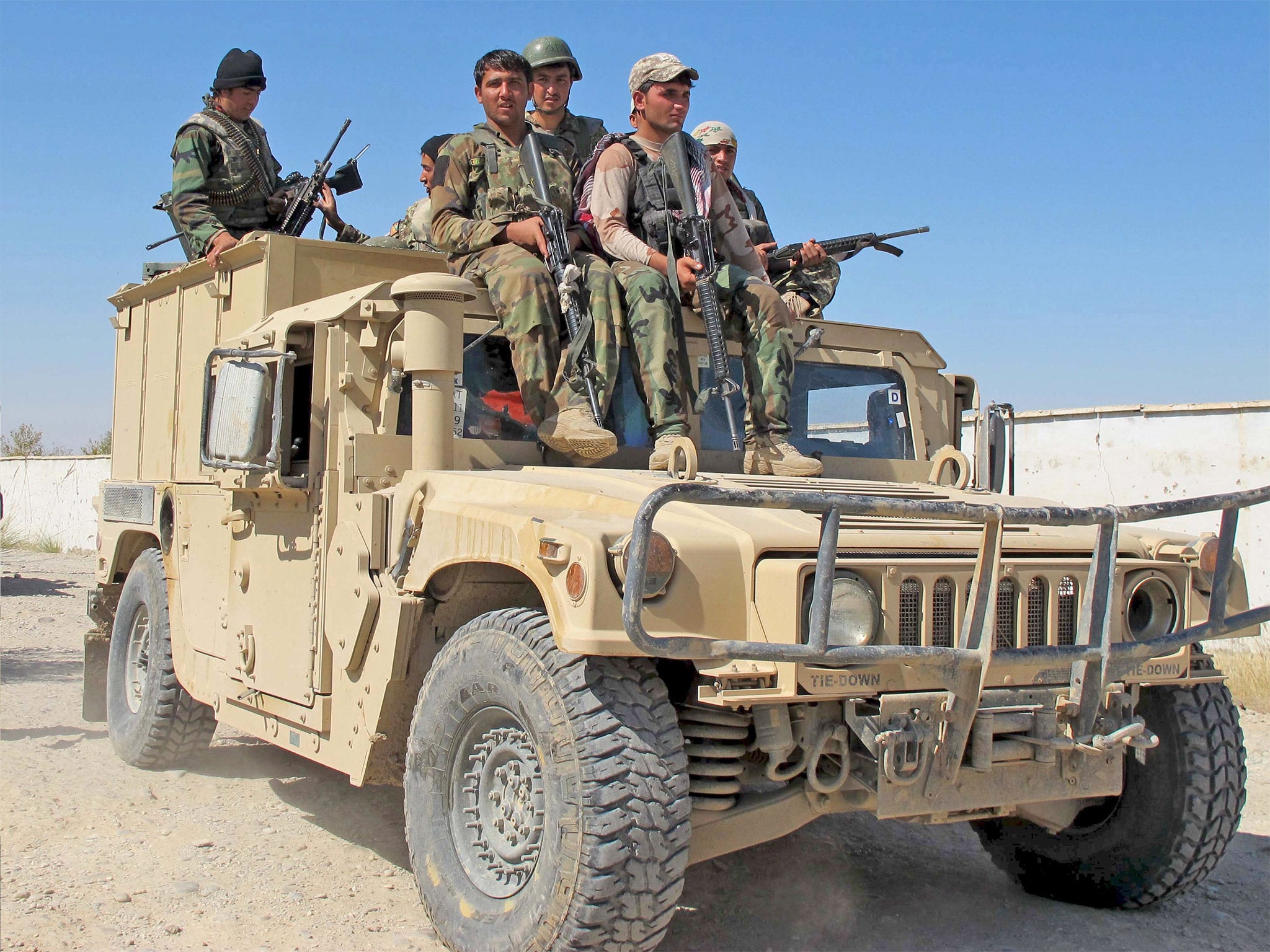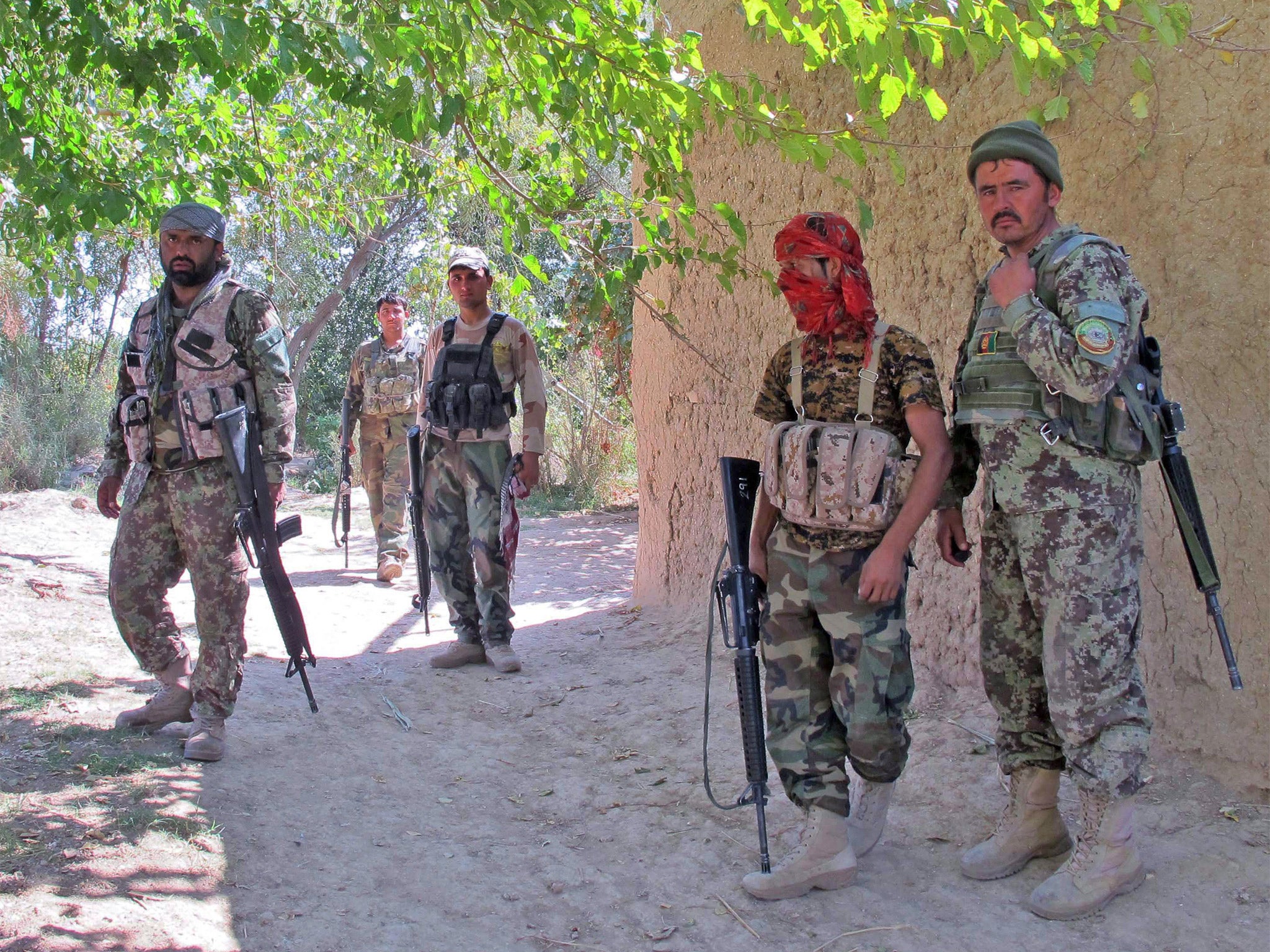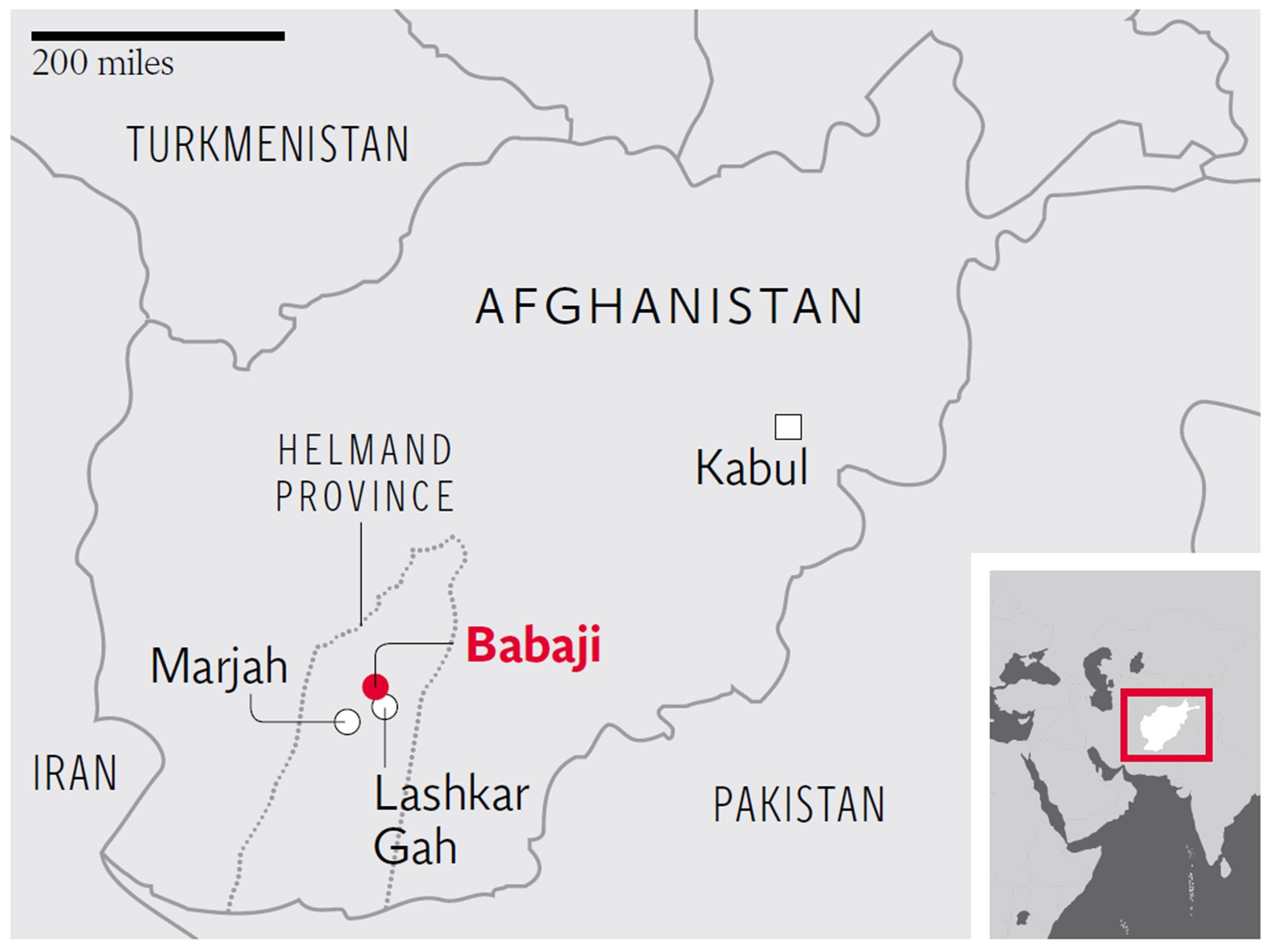Taliban in Afghanistan: Afghan forces regroup to challenge militants' advance on key city of Lashkar Gah
Insurgents have made inroads into Helmand, with intense fighting threatening the former British stronghold and provincial capital

Your support helps us to tell the story
From reproductive rights to climate change to Big Tech, The Independent is on the ground when the story is developing. Whether it's investigating the financials of Elon Musk's pro-Trump PAC or producing our latest documentary, 'The A Word', which shines a light on the American women fighting for reproductive rights, we know how important it is to parse out the facts from the messaging.
At such a critical moment in US history, we need reporters on the ground. Your donation allows us to keep sending journalists to speak to both sides of the story.
The Independent is trusted by Americans across the entire political spectrum. And unlike many other quality news outlets, we choose not to lock Americans out of our reporting and analysis with paywalls. We believe quality journalism should be available to everyone, paid for by those who can afford it.
Your support makes all the difference.Afghan forces, backed by reinforcements from the country’s special forces, have launched a counter-attack against Taliban fighters who have captured Babaji in Helmand province and are threatening nearby Lashkar Gah, the provincial capital.
Locals in the southern Afghan town, a former British stronghold, and some who have managed to escape said that during intensive fighting both the insurgents and Afghan troops have deployed rocket launchers, mortars and heavy machine guns in the battle for control of strategic locations.
The attack by the Taliban surprised local Afghan forces and has left Lashkar Gah facing the threat of an advance by the group. The fighting comes three weeks after the insurgents briefly captured the northern city of Kunduz in one of their biggest military successes since the conflict began in 2001.

“Several people have been hit. Houses have been destroyed,” Haji Baba, a 61-year-old farmer told The Independent from Babaji. “Bodies are rotting in the streets and we can do nothing as the Taliban have mined roads and fields.”
Mr Baba said insurgents began descending on the town in groups of between 10 and 15 last Friday night, and the town was overrun by Tuesday. “The groups soon swelled to fifties and then to hundreds,” he said. “They came loaded with Dushka [Russian-made heavy machine guns], rocket launchers and mortars.”
A doctor in Babaji, who requested anonymity, said about 600 families escaped the town taking advantage of the initial chaos. “In my village, most people fled. But then the Taliban mined the roads, fields, bridges, making such a venture extremely dangerous.” The doctor added that he had seen Taliban moving heavy weaponry on the back of camels over the past two days.
“Groups of insurgents invaded houses, shops, fields,” said Khodidad Khan, a cotton farmer in Loay Manda area of Babaji. “Soon, they were everywhere. The fighting started right from our homes.”
Baaz Gul Mojahid, Afghan local police commander in the neighbouring district of Marjah, rushed to Babaji when news started trickling in of the Taliban assault.
“I saw Taliban units, as strong as 100 men, firing indiscriminately from homes and fields on police posts that are usually manned by five to 10 policemen. I saw bodies of at least 21 policemen. We were on the defensive, trying to save our lives and limit the damage. They were pounding us.”
We have established security belts around Lashkar Gah. Let Taliban come, they will get a befitting welcome
Jawid Khan, an Afghan local police commander in Babaji, admitted that the Afghan forces were taken by surprise, but that they would have been able to do little even if they knew the Taliban was coming. “Our weapons are no match for their Dushkas,” he said. “Also, the insurgents embedded themselves in homes and maize fields. This tied our hands. We couldn’t open fire for fear of causing civilian casualties.”

British troops fought a number of major battles to gain control of the region around Lashkar Gah from the Taliban during the more than decade-long conflict, including one of the UK’s largest offensives in Afghanistan, Operation Panther’s Claw. Helmand province has long been a centre of Taliban support and Lashkar Gah was the main base of operations for British forces from 2006 until 2013, when troops were moved to Camp Bastion.
British combat troops were withdrawn from Afghanistan last year.
A spokesman for the country’s interior ministry in Kabul, Sediq Sediqi, said Afghan forces had made progress around Babaji since being dispatched from Lashkar Gah early Wednesday. “They have since made some significant gains in the fighting, which includes regaining control of a police station.”
On the perceived threat to the provincial capital, Mr Sediqi was bullish: “We have established security belts around Lashkar Gah. Let Taliban come, they will get a befitting welcome.”
Join our commenting forum
Join thought-provoking conversations, follow other Independent readers and see their replies
Comments